Babydoll Sheep
Babydoll sheep is a breed of sheep also known as Olde English southdown sheep. It is called babydoll because of its gentle nature and non-aggressive behavior like a”baby” and their small size is attractively colored and wrapped in wool like a “dol”.
Difference between southdown sheep and babydoll sheep : Southdown sheep and Babydoll sheep differ in size, origin, and utility. Southdowns are larger, originating in England for meat and wool. Babydolls are smaller, bred in the US for ornamental purposes. Southdowns have finer wool and tender meat, while Babydolls have coarser fleece and are not primarily raised for meat…Read more
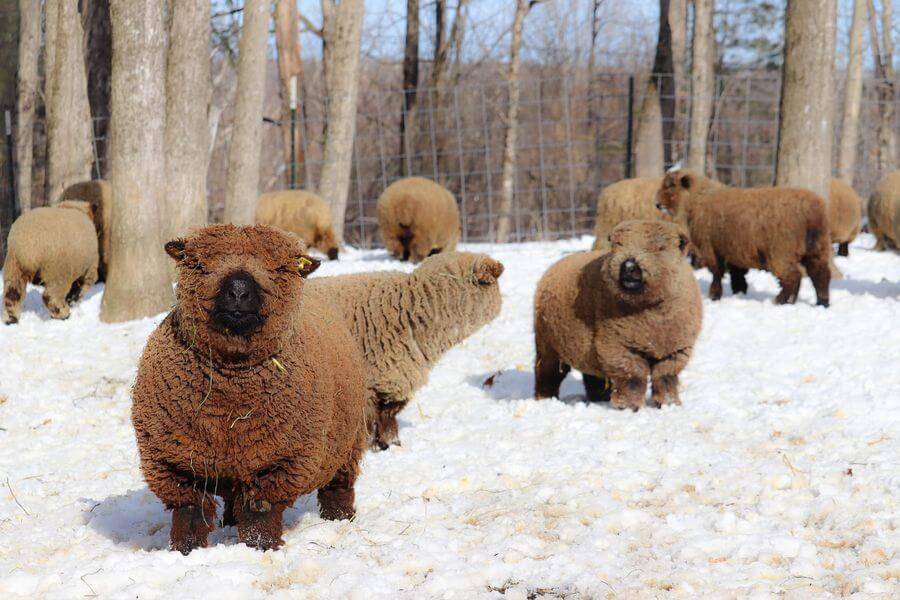
The Endearing Charm of These Miniature Sheep
Babydoll Sheep are known for their small size and adorable appearance. They stand at just 18 to 24 inches tall at the withers. With round faces and short legs, they look like cute teddy bears. These qualities make them popular among farmers and enthusiasts alike. Their friendly nature and inquisitive behavior add to their charm.
The History and Origin of Babydoll Sheep
To truly appreciate Babydoll Sheep, it’s essential to explore their history. These charming sheep have their roots in Sussex, England, dating back to the 19th century. They were initially bred for their fine wool and compact size. Over the years, they’ve retained their endearing features, making them a unique and beloved breed.
What Makes Them So Charming
One of the most distinctive features of Babydoll sheep is their adorable teddy bear-like faces. These sheep sport a short, sweet expression that captures the hearts of all who encounter them. Their round, expressive eyes and soft, fuzzy ears give them an endearing appearance. This charm is not just skin deep; Baby doll sheep are known for their friendly and gentle personalities, making them popular as pets, lawnmowers, and even therapy animals.
Why Babydoll Sheep Steal Hearts
Babydoll sheep have a gentle disposition that further adds to their allure. Their docile and friendly nature makes them an ideal choice for individuals seeking a low-maintenance, loving, and compact livestock option. They are known for their social behavior and can be easily tamed, making them a favorite among hobby farmers, families, and petting zoos.
Babydoll Sheep Colors
Babydoll sheep display a range of coat colors, with white being the most prevalent. However, you can also find Babydolls with shades of brown, ranging from a light beige to deep chocolate. These coat colors are determined by their genetics, and some Baby doll sheep may even have subtle markings or patches. This diversity in coat colors adds to their visual appeal, making them a charming addition to any farm…Read more
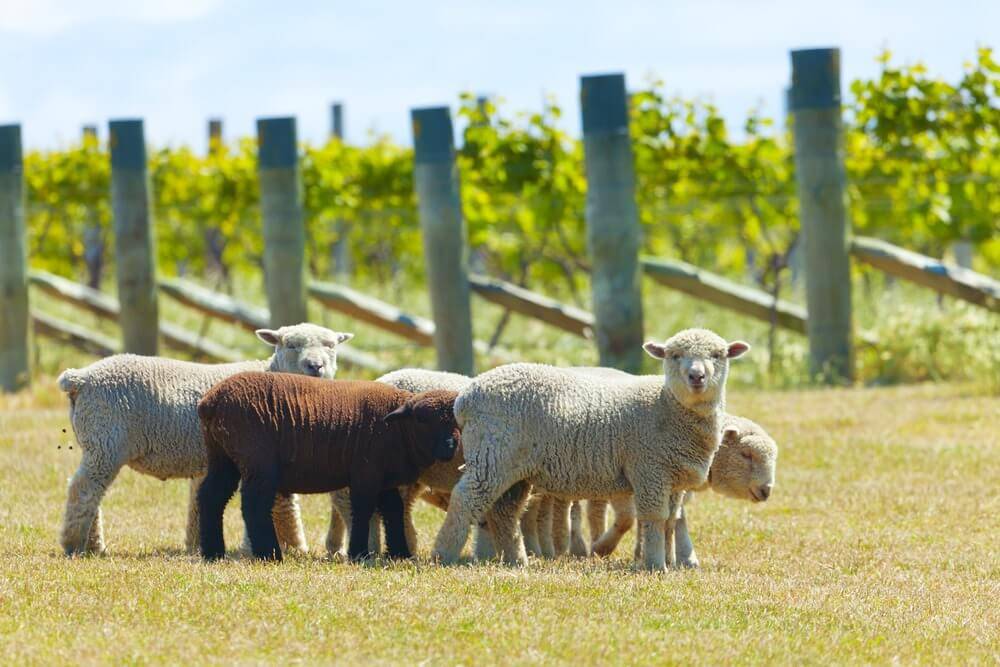
Why Colors Makes Babydoll Sheep Even More Fascinating
Colors play a significant role in making Babydoll Sheep even more fascinating for several reasons:
Aesthetic Appeal
Babydoll Sheep come in various colors and patterns, including solid colors like white, black, and brown, as well as spotted or piebald patterns. These different colors add visual interest and appeal to the sheep, making them more attractive to behold
Breeding Considerations
Breeders often select for specific colors or patterns as part of their breeding programs. Certain colors or patterns may be favored for their aesthetic appeal or for meeting specific breed standards. This selective breeding can result in visually striking sheep with desired characteristics.
Cultural Significance
In some cultures, certain colors hold symbolic or cultural significance. The presence of these colors in Babydoll Sheep may carry additional meaning or resonance for people who identify with or appreciate those cultural associations.
Photographic Opportunities
The vibrant colors and patterns of Babydoll Sheep make them excellent subjects for photography. Whether capturing them grazing in a field or posing against a backdrop, their colorful coats can enhance the visual appeal of photographs and attract attention from viewers.
Overall, the variety and beauty of colors exhibited by Babydoll Sheep contribute to their allure and cham, making them a fascinating and visually captivating breed.
Babydoll Sheep Breed
Babydoll sheep, also known as Southdown Babydoll sheep, are a specific breed within the broader Southdown breed group. They are characterized by their small stature, teddy bear-like appearance, and gentle disposition. Babydoll sheep originated in England and were later introduced to the United States…Resd more
Miniature sheep, often exemplified by the charming Babydoll Sheep breed, bring joy to farms and households with their diminutive stature and endearing presence. Their small size, characterized by short legs and a teddy bear-like appearance, makes them perfect for those seeking delightful and manageable farm animals. Despite their petite frames, miniature sheep, particularly the Babydoll variety, are known for their friendly nature, making them wonderful additions to both rural and suburban settings.
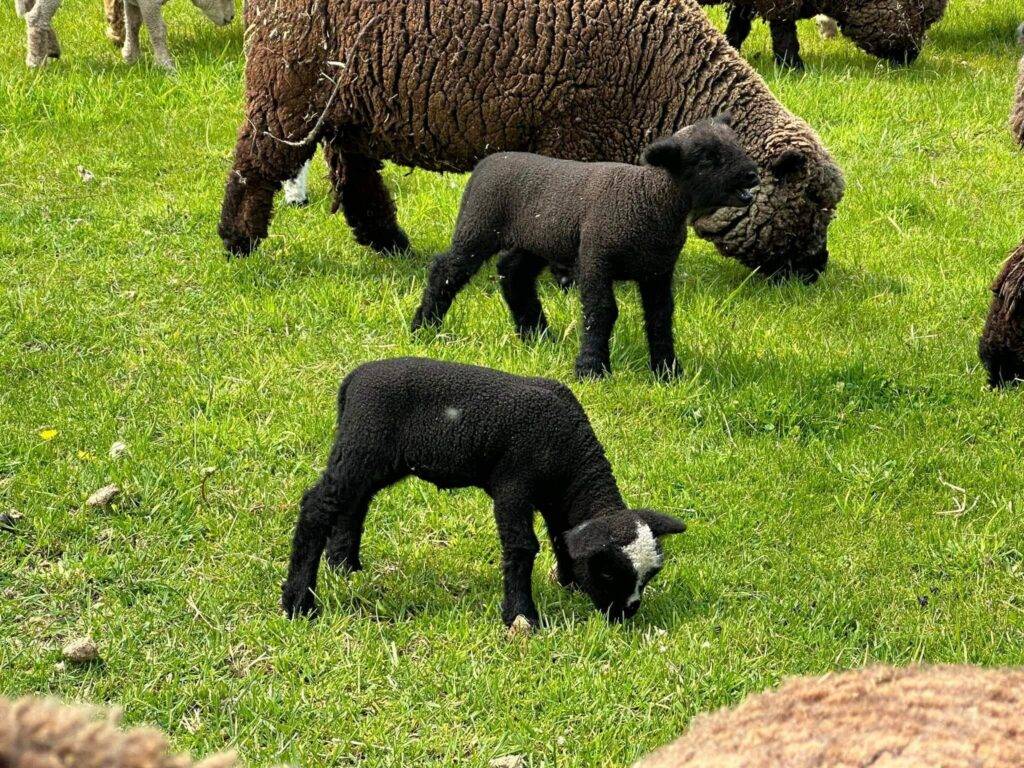
The Joy of Keeping Babydoll Sheep as Pets
The joy of keeping Babydoll sheep as pets is immeasurable. These small, fluffy creatures have a captivating charm that warms the hearts of their owners. Whether you have a farm, a backyard, or a small piece of land, Baby doll sheep can become a delightful part of your life. Their gentle disposition and endearing appearance make them perfect companions for people of all ages.
A Lifelong Bond : How Babydoll Sheep Become Cherished Members of the Family
As time goes on, Babydoll sheep become cherished members of the family. Their lovable and gentle personalities make it easy to form a lifelong bond. Many owners find themselves deeply attached to their sheep, and the sheep reciprocate this affection. The unique connection between Baby doll sheep and their owners is a testament to the joy and love they bring into people’s lives.
Benefits of Raising Babydoll Sheep
Raising Babydoll sheep offers a host of benefits that make them an attractive choice for farmers and enthusiasts. Let’s delve into these advantages and discover why these charming creatures are highly regarded in the world of livestock.
The Woolly Treasure : The Advantages of Babydoll Sheep Fleece
One of the most significant benefits of raising Babydoll sheep is the wool they produce. Babydoll are prized for their dense and fine fleece, which has a range of advantages. The wool is not only soft and warm but also versatile, making it ideal for various crafting and textile projects. Crafters and spinners often seek out Baby doll sheep wool for its quality and natural beauty.
Wool as a Valuable Resource : Spinning and Crafting with Babydoll Sheep Wool
The wool from Babydoll sheep is a valuable resource for crafters and artisans. This wool is known for its softness and versatility, making it perfect for spinning into yarn and creating a wide range of products. From cozy blankets to warm clothing, Baby doll sheep wool has a myriad of crafting possibilities. Crafters can take advantage of this resource to produce unique, handmade items that hold both aesthetic and practical value.
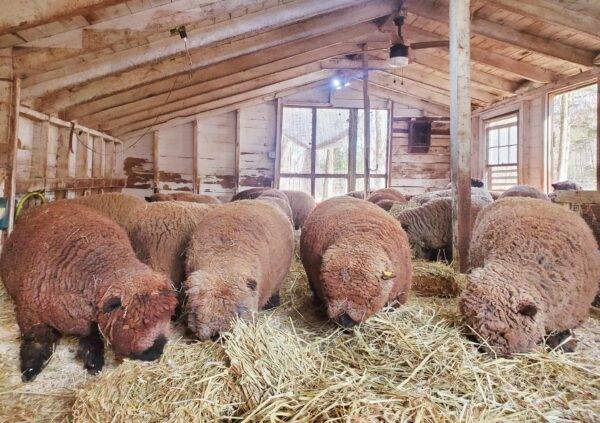
Sustainable Grazing : Their Contribution to Land Management
Babydoll sheep also play a valuable role in land management. Their grazing habits are sustainable and environmentally friendly. These sheep are known for their ability to graze down pastures effectively, helping to maintain healthy and well-balanced landscapes. By preventing overgrowth and promoting the growth of diverse forage, Babydoll contribute to sustainable land management practices
A Livestock Investment : How Babydoll Sheep Prove Their Worth
Babydoll sheep are not only adorable but also a wise investment for farmers. Their small size and manageable nature make them a cost-effective choice, requiring less space, feed, and maintenance compared to larger livestock. Farmers appreciate their adaptability to various environments, which can reduce the expenses associated with housing and care. Additionally, their wool production can provide a steady source of income, making them a valuable addition to any farm.
An Eco-Friendly Choice : Reducing Environmental Impact through Their Grazing Habits
Raising Babydoll sheep is an eco-friendly choice due to their grazing habits. By maintaining pastures and promoting healthy land use, they contribute to a more sustainable and environmentally friendly farming practice. Their small size also means they have a lower carbon footprint compared to larger livestock. This makes them an excellent choice for those looking to reduce their environmental impact while enjoying the benefits of livestock farming.
In conclusion, the benefits of raising Babydoll sheep extend to their valuable fleece, contributions to land management, cost-effectiveness, and the versatility of their wool. Moreover, their eco-friendly grazing habits make them a sustainable choice for farmers and enthusiasts, adding to their appeal as a well-rounded and valuable livestock breed.
Babydoll Sheep Farming
Baby doll sheep are very useful for pets in small farms. But when choosing and shopping for babydoll sheep for your farm, keep these things in mind.
Matching Sheep to Your Needs: How to Choose the Right Ones
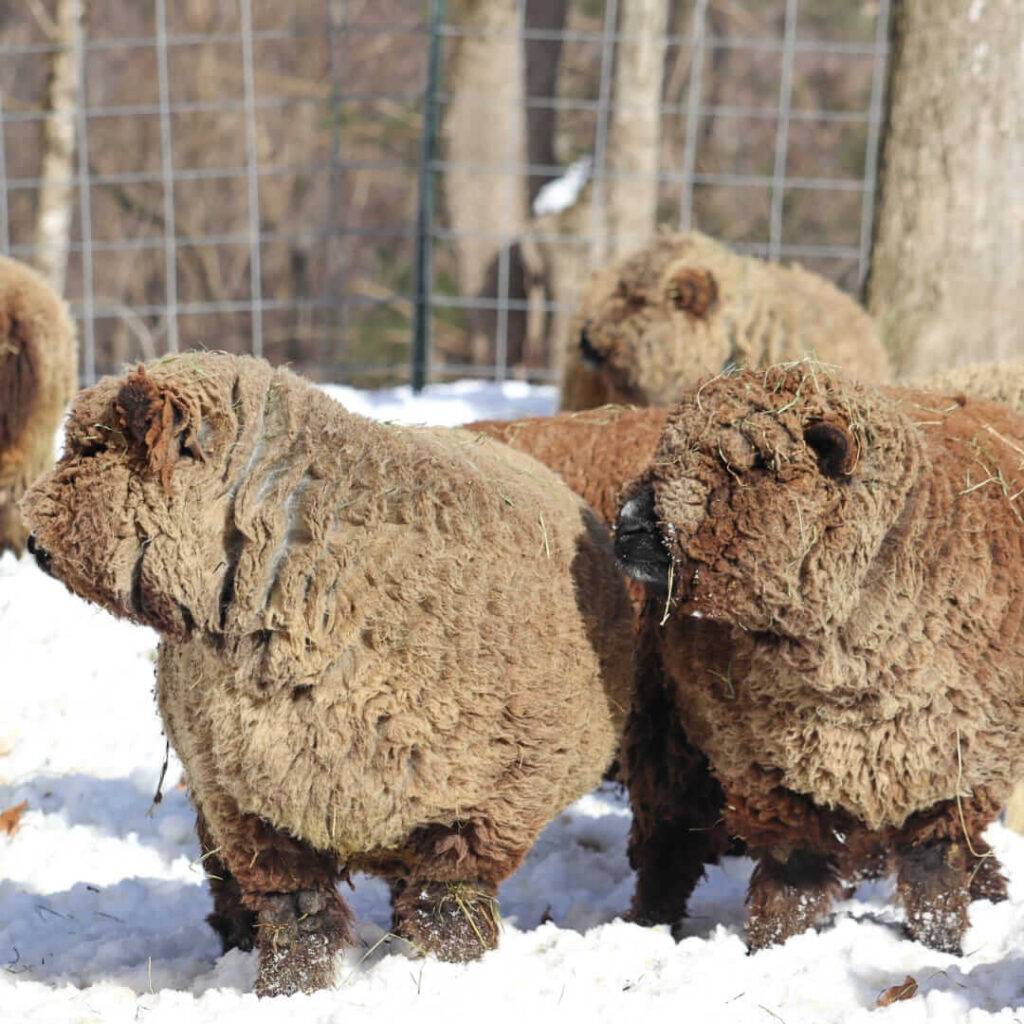
When it comes to selecting and purchasing Babydoll sheep, there are important steps to consider to ensure you get the right sheep for your needs. Let’s explore how to choose the right ones, what to look for when purchasing Baby doll sheep, and how to prepare for their arrival on your farm.
What to Look for When Purchasing Babydoll Sheep
When you start the purchasing process, look for certain qualities in potential Baby doll sheep. Ensure they have a healthy appearance, with bright eyes, clear nostrils, and a clean coat. Pay attention to their size, as some may be smaller or larger than the typical Baby doll sheep. Evaluate their behavior and social skills to ensure they are friendly and adaptable to your farm environment.
Evaluating the Health and History of Potential Sheep
Health is a top priority when selecting Babydoll sheep. Ask the breeder for their health records and vaccination history. Check for any signs of illness or injury, such as lameness or nasal discharge. It’s crucial to select sheep that are in good health to prevent potential issues on your farm.
Navigating the Market : Finding Reputable Breeders
When searching for Babydoll sheep, it’s important to find reputable breeders. Research local breeders or consider recommendations from experienced farmers or enthusiasts. Visit the breeder’s farm to inspect their facilities and interact with the sheep. A trustworthy breeder will provide you with accurate information about the sheep’s history, lineage, and health.
Ensuring a Smooth Transition : Preparing for New Arrivals on Your Farm
As you prepare to bring your new Babydoll sheep home, make sure your farm is ready to welcome them. Secure a safe and comfortable enclosure, provide proper nutrition, and have the necessary equipment for their care. Familiarize yourself with the specific needs of Baby doll sheep, such as grooming and feeding requirements. By being well-prepared, you can ensure a smooth transition for your new arrivals.
Finally selecting and buying baby doll sheep for your farm involves meeting your needs, assessing potential sheep, finding trusted breeders, and preparing your farm for their arrival. Taking these steps will help you choose the right baby doll sheep for your specific purposes and ensure their health and well-being as they become part of your agricultural life.
Caring for Babydoll Sheep
Caring for Babydoll sheep is a rewarding experience, but it requires attention to various aspects to ensure their well-being. In this article, we’ll explore how to provide shelter, meet their nutritional needs, ensure their health, and consider the effects of weather and seasons.
Providing Shelter: Creating Safe and Comfortable Housing
Babydoll sheep require shelter that keeps them safe and comfortable year-round. A well-constructed barn or shelter is essential to protect them from harsh weather conditions, such as extreme heat, cold, and rain. Make sure the shelter is well-ventilated to prevent humidity and ensure good air circulation. Providing bedding or straw on the floor helps keep them warm during colder seasons.
Feed Them Right: Nutritional Needs and Balanced Diets
Feeding Babydoll sheep properly is crucial for their health. Their diet should consist of good-quality hay, grass, and access to fresh, clean water. Consult with a veterinarian or livestock expert to ensure you are meeting their nutritional needs. Baby doll sheep may also benefit from mineral supplements to maintain their health. Overfeeding can lead to obesity, so it’s important to monitor their diet and avoid excessive treats.
Healthcare and Routine Check-Ups: Ensuring Their Well-Being
Regular healthcare and check-ups are essential to ensure the well-being of your Babydoll sheep. Schedule vaccinations and deworming as recommended by your veterinarian to prevent common illnesses and parasites. Keep an eye out for any signs of illness, such as changes in behavior, eating habits, or physical appearance, and consult a professional immediately if you notice anything concerning.
Handling the Elements: Weather and Seasonal Considerations
Weather and seasons play a significant role in the care of Babydoll sheep. During hot weather, provide shade and ensure access to plenty of fresh water to prevent heat stress. In cold weather, make sure their shelter is well-insulated and keep them warm with appropriate bedding. Be aware of any seasonal changes that may affect their nutrition and adjust their diet as needed. Baby doll sheep are hardy animals, but it’s crucial to protect them from extreme weather conditions that could compromise their health.
In conclusion, caring for Baby doll sheep involves providing safe and comfortable shelter, meeting their nutritional needs, ensuring their health through routine check-ups, and considering the effects of weather and seasons. By paying attention to these key aspects, you can create a nurturing and healthy environment for your Baby doll sheep, allowing them to thrive and bring joy to your farm.
Babydoll Sheep Wool
Babydoll sheep are known not only for their charming appearance but also for the exceptional quality of their wool. In this article, we’ll take a closer look at their luxurious wool, explore its many uses, understand the harvesting and processing of the fleece, and delve into the world of crafting and spinning with this precious fiber.
The Luxurious Qualities of Babydoll Sheep Wool
Babydoll sheep produce wool that is truly a gem in the world of textiles. Their fleece is soft, fine, and incredibly luxurious. The wool is highly sought after by crafters and artisans for its premium quality. It’s known for its warmth and comfort, making it perfect for various textile projects. When you touch Baby doll sheep wool, you’ll immediately appreciate its softness and the premium feel it brings to any crafting endeavor.
Exploring the Many Uses of Their Precious Fleece
Babydoll sheep wool is incredibly versatile and can be used in a multitude of ways. Crafters and artisans adore it for its ability to create cozy and beautiful textiles, from blankets and scarves to sweaters and hats. The wool is also ideal for felting, making it a favored choice for those who enjoy creating intricate woolen art pieces. Baby doll sheep wool adds a touch of luxury to any project, and its fine fibers make it easy to work with.
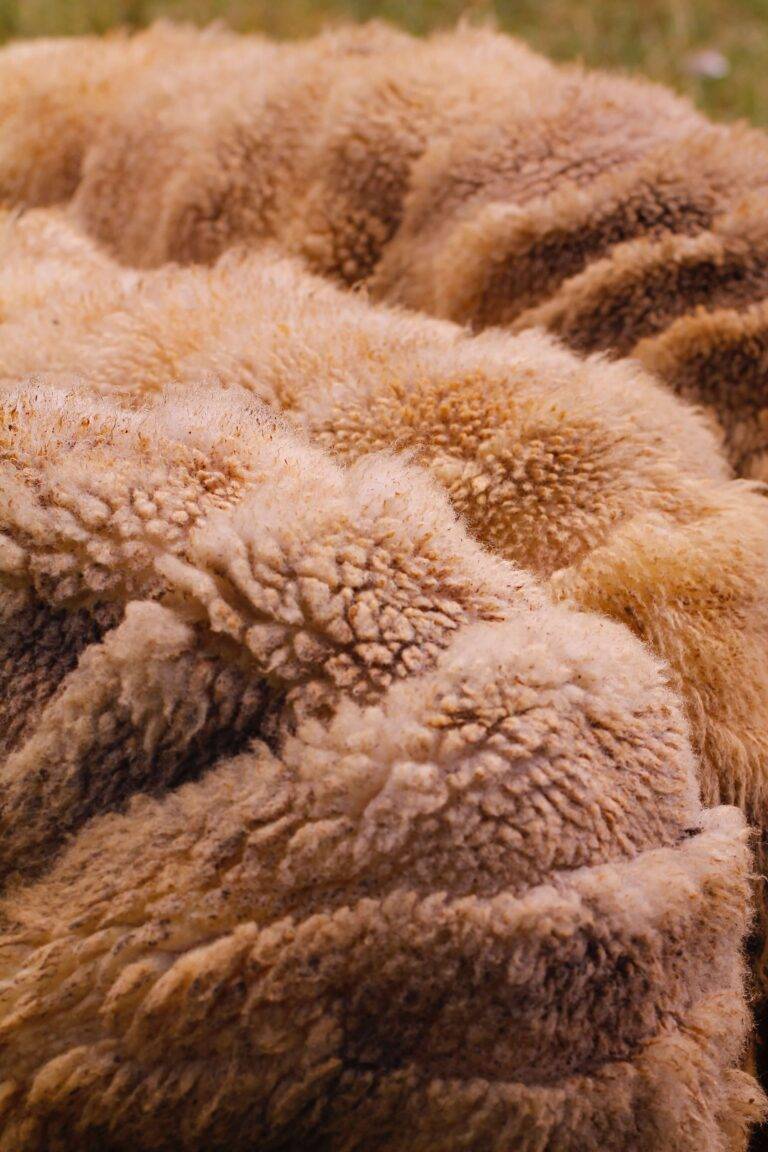
Harvesting and Processing : Turning Wool into Usable Fiber
Harvesting and processing Babydoll sheep wool is a meticulous but rewarding process. It involves shearing the sheep to collect the raw fleece, which is then cleaned and processed to remove impurities. The cleaned wool is often carded or combed to align the fibers and create a consistent texture. After processing, the wool is ready for crafting and spinning.
Crafting with Love : How to Create Beautiful Textiles with Babydoll Sheep Wool
Crafting with Babydoll sheep wool is a labor of love. The luxurious quality of the wool makes it an excellent choice for crafting warm and beautiful textiles. Whether you’re knitting, crocheting, or weaving, Baby doll sheep wool will elevate your projects with its softness and warmth. Crafters appreciate the versatility of this wool, which allows them to create a wide range of items that are both functional and aesthetically pleasing.
Breeding Babydoll Sheep
Breeding Babydoll sheep is a rewarding and vital aspect of sheep farming. It involves a series of practices and considerations to ensure healthy offspring and a thriving flock. In this article, we’ll explore the art of Baby doll sheep reproduction, how to care for pregnant ewes, taking care of newborn lambs, ensuring the health of the offspring, and the delightful sight of Baby doll sheep families on your farm.
The Art of Babydoll Sheep Reproduction: Breeding Practices and Timing
Breeding Babydoll sheep requires a good understanding of the reproductive practices and timing. Baby doll sheep typically breed in the fall, with a gestation period of approximately 147 days. It’s essential to carefully select breeding pairs based on their lineage and desired traits. While nature plays a significant role in reproduction, breeders can also use controlled breeding methods to ensure healthy and well-bred offspring.
Preparing for New Arrivals: Care of Pregnant Ewes
Caring for pregnant ewes is a crucial part of the breeding process. Provide a quiet and comfortable environment for pregnant ewes to minimize stress. Ensure they have access to clean water and a balanced diet to support their health and the development of their unborn lambs. Regular check-ups by a veterinarian are essential to monitor the ewes’ progress and ensure a smooth pregnancy.
Welcoming the Young Ones: Taking Care of Newborn Lambs
The arrival of newborn lambs is an exciting time on the farm. When the lambs are born, make sure they are kept in a clean and warm area. Ewes should bond with their lambs, and it’s essential to monitor the newborns to ensure they are feeding and growing correctly. Providing proper nutrition to both ewes and lambs is vital for their health and development.
Nurturing the Flock: Ensuring Healthy Offspring
As the lambs grow, their health and well-being remain a top priority. Regular health checks and vaccinations are essential to prevent common sheep illnesses. Ensure the lambs have access to clean water and a diet appropriate for their age and development. By nurturing the flock with proper care, you can raise healthy Baby doll sheep that will continue to thrive on your farm.
The Beauty of Babydoll Sheep Families: A Delightful Sight on Your Farm
Babydoll sheep families are a delightful sight on any farm. Watching ewes care for their newborn lambs, seeing the lambs frolic in the fields, and observing the strong bonds within the flock is a heartwarming experience. Baby doll sheep families add to the charm and appeal of raising these endearing creatures, making the breeding and care process a truly rewarding endeavor.
In conclusion, breeding Baby doll sheep involves an understanding of reproductive practices, caring for pregnant ewes, nurturing newborn lambs, ensuring the health of the offspring, and witnessing the beauty of Baby doll sheep families on your farm. It’s a fulfilling and heartwarming part of sheep farming that adds to the joy and charm of these lovely animals.
Common Health Issues in Babydoll Sheep
Ensuring the health and well-being of your Babydoll sheep is a top priority for any shepherd. This article will explore common health issues in Baby doll sheep, how to recognize signs of illness, preventive measures, treatment tips, the importance of regular veterinary care, and the role of nutrition in maintaining good health.
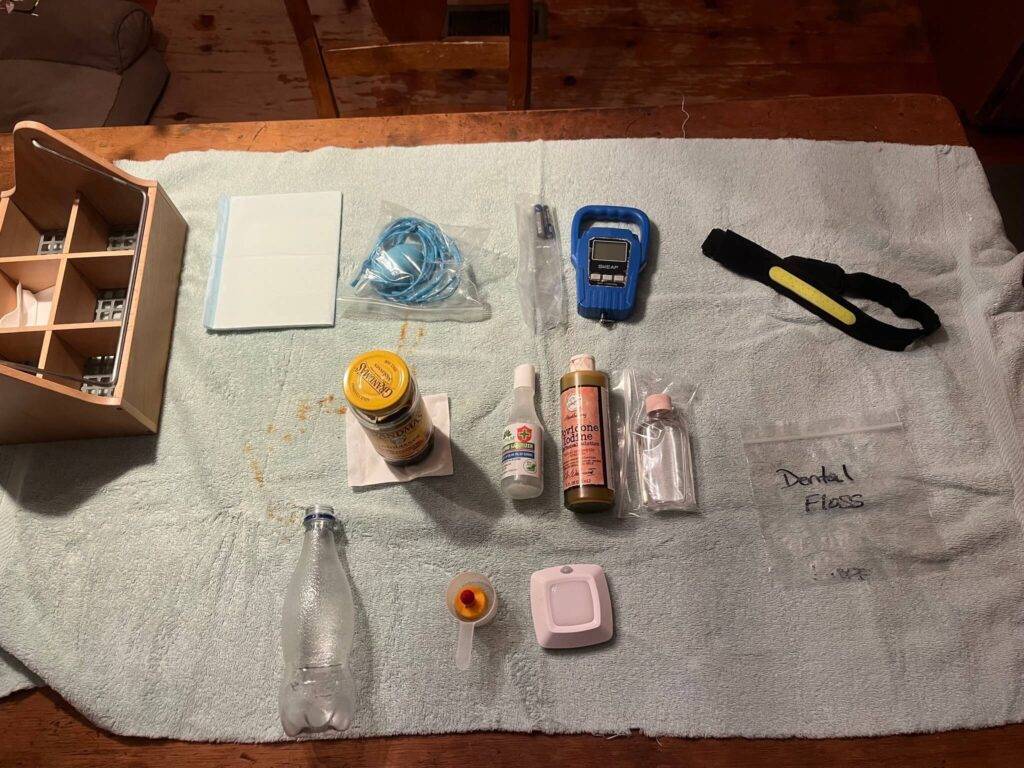
Understanding Signs of Illness: Recognizing Common Health Problems
Recognizing the signs of illness in Babydoll sheep is essential for prompt treatment. Some common health issues in these sheep include respiratory infections, digestive problems, and parasitic infestations. Signs of illness can include changes in behavior, such as lethargy or a loss of appetite, abnormal discharges from the eyes or nose, and lameness. Keeping a close eye on your flock and recognizing these signs can help you address health issues early.
Prevention Is Key: Health Precautions for Your Flock
Preventing health problems in Babydoll sheep is always better than dealing with illnesses. Regularly clean and sanitize their living area, as dirty conditions can contribute to disease. Ensure your sheep have access to clean water and nutritious food to maintain their overall health. Implement a vaccination and deworming schedule recommended by your veterinarian to prevent common illnesses and parasites.
Addressing Health Concerns: Tips for Providing Appropriate Treatment
In case your Babydoll sheep do fall ill, it’s important to provide them with appropriate treatment. Isolate sick sheep from the rest of the flock to prevent the spread of disease. Follow the veterinarian’s advice and administer any prescribed medications as directed. Provide a quiet and comfortable recovery space for the sick sheep, and monitor their progress closely.
Veterinary Care: The Importance of Regular Check-Ups
Regular veterinary check-ups are crucial for the ongoing health of your Babydoll sheep. These check-ups can help identify and address potential health issues early, preventing more significant problems down the road. A veterinarian can also recommend vaccination and deworming schedules tailored to your specific flock, ensuring that your sheep remain in good health throughout the year.
The Role of Nutrition in Maintaining Good Health
Proper nutrition plays a key role in maintaining the health of your Babydoll sheep. Consult with a livestock nutrition expert to develop a feeding plan that meets the specific needs of your flock. Providing the right nutrition will help keep your sheep healthy, resilient, and ready to thrive.
In conclusion, recognizing common health issues in Baby doll sheep, implementing preventive measures, addressing health concerns with appropriate treatment, regular veterinary care, and maintaining good nutrition are essential for keeping your flock healthy and happy. By staying attentive to their well-being, you can ensure that your Baby doll sheep lead healthy and fulfilling lives.
Babydoll Sheep in Sustainable Agriculture
Babydoll sheep play a significant role in sustainable agriculture, contributing to ecological and regenerative farming practices. This article will explore how Baby doll sheep benefit the environment, promote sustainable land management, create ecological advantages, support biodiversity, and contribute to the broader picture of sustainability in agriculture.
Grazing for Sustainability: How Babydoll Sheep Benefit the Environment
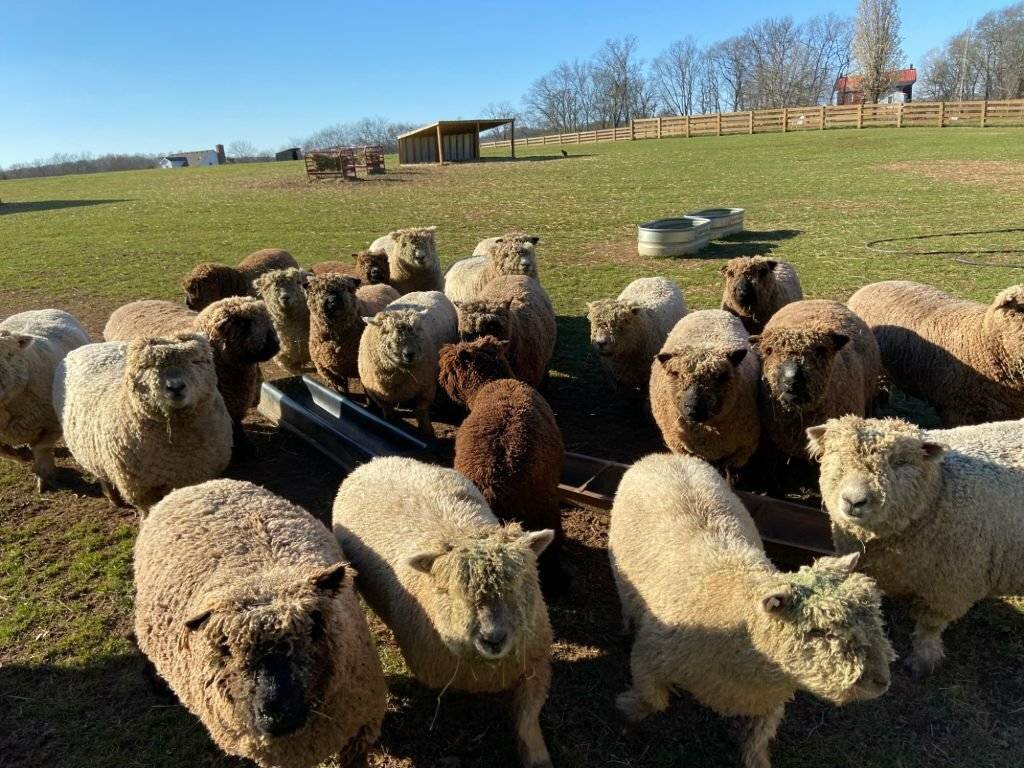
One of the notable contributions of Babydoll sheep to sustainable agriculture is their grazing behavior. These sheep are known for their ability to graze effectively, helping to manage pastures and prevent overgrowth. By keeping the vegetation in check, they support a more sustainable environment and reduce the need for harmful chemical interventions. Baby doll sheep’s grazing habits are eco-friendly, minimizing the environmental impact on the land.
Regenerative Farming: Their Role in Sustainable Land Management
Regenerative farming focuses on restoring and maintaining the health of the land while producing food and fiber. Babydoll sheep are a valuable part of this approach, as they help maintain a balanced ecosystem on the farm. Their grazing behavior promotes healthy pastures, which, in turn, benefit the entire ecosystem. By preventing overgrazing and soil erosion, Baby doll sheep support sustainable land management that enhances soil quality and plant diversity.
Ecological Advantages: Promoting Healthy Pastures and Land
The ecological advantages of having Babydoll sheep on a sustainable farm are manifold. Their grazing activities help to create healthy and diverse pastures. This, in turn, benefits other wildlife on the farm, including insects, birds, and small mammals. A well-balanced ecosystem is crucial for the long-term health and sustainability of the land. Baby doll sheep’s presence contributes to a thriving and vibrant environment.
Supporting Biodiversity: How Babydoll Sheep Contribute to a Balanced Ecosystem
Biodiversity is essential for a balanced ecosystem, and Babydoll sheep play a role in supporting this diversity. Their grazing activities encourage a wide range of plant species to flourish, which, in turn, attracts various insects, pollinators, and other wildlife. A diverse ecosystem is more resilient and adaptable, better able to withstand environmental challenges. Baby doll sheep are a piece of the puzzle in maintaining this biodiversity on sustainable farms.
Sustainability in Agriculture: The Bigger Picture with Babydoll Sheep
In the broader context of sustainability in agriculture, Babydoll sheep are an integral component. Their grazing behaviors, regenerative farming contributions, ecological advantages, and support for biodiversity all contribute to a more sustainable and eco-friendly agricultural landscape. As we continue to address the challenges of modern agriculture, Baby doll sheep are a reminder that sustainable practices can benefit both the environment and our food production systems.
In conclusion, Babydoll sheep make a meaningful contribution to sustainable agriculture through their grazing habits, regenerative farming role, ecological advantages, and support for biodiversity. In the bigger picture of sustainability, they are an important part of the puzzle, showcasing how sustainable practices can lead to a healthier environment and more robust agricultural systems.
Conclusion
In conclusion, the journey into the world of Babydoll sheep is a remarkable and heartwarming one. These small, charming sheep have the power to captivate hearts and create lasting connections with their owners. As we recap this journey, we’re reminded of the joy they bring and the unique bond that develops between humans and these endearing animals.
A Recap of the Babydoll Sheep Journey
The Babydoll sheep journey takes us through various aspects of their lives, from their distinctive features to their role in sustainable agriculture, from their place in the world of pets to their contribution to the livestock industry. We’ve learned about their compact size, teddy bear faces, gentle disposition, and the variations within the breed. We’ve explored their wool, their role in regenerative farming, and the ecological advantages they offer. We’ve also delved into the joy of keeping them as pets, the human-sheep connection, and the challenges and rewards of ownership. It’s a journey filled with learning, appreciation, and love for these charming animals.
Encouragement to Explore the World of Babydoll Sheep
For those who haven’t yet embarked on the Babydoll sheep journey, we encourage you to explore this enchanting world. These sheep have a unique and unforgettable nature that will add a touch of joy and wonder to your life. Whether you’re a farmer, a pet owner, or someone passionate about sustainable agriculture, Baby doll sheep have something special to offer. Their small size, big charm, and endearing qualities make them a delightful addition to any farm or home.
Small in Size, Big in Charm: The Unforgettable Nature of Babydoll Sheep
Babydoll sheep are a testament to the idea that charm knows no size. Their diminutive stature belies the immense joy and companionship they bring. These small sheep have the power to leave an indelible mark on the hearts of those who have the pleasure of knowing them. So, as we conclude our journey into the world of Babydoll sheep, let us carry forward the admiration, affection, and appreciation for these unforgettable creatures, cherishing the memories and connections they create in our lives.
FAQ's
Babydoll Sheep, also known as Ouessant or Olde English Southdown sheep, are a miniature breed known for their compact size and gentle temperament. They make excellent pets, wool producers, and are popular for sustainable land management.
Babydoll Sheep are ideal for small farms or backyard enthusiasts. They require less space, eat less than larger breeds, and their wool is prized for its quality. Their friendly nature makes them suitable for families.
Babydoll Sheep are a small breed, with mature ewes ranging from 18 to 24 inches in height at the shoulder. Rams are slightly larger, typically between 20 to 28 inches.
Babydoll Sheep have a lifespan of 10 to 12 years on average, provided they receive proper care, nutrition, and veterinary attention.
Babydoll Sheep require a balanced diet, access to fresh water, shelter, and routine veterinary care. Regular grooming and parasite control are also essential for their well-being.
Absolutely! Babydoll Sheep are known for their friendly and docile nature, making them wonderful companions. They enjoy human interaction and are easily manageable, even for those new to raising sheep.
Babydoll Sheep produce a fine, high-quality wool that is prized by crafters and artisans. The wool is soft, with a short staple length, making it suitable for various fiber arts.
Yes, Babydoll Sheep are excellent grazers and can help control vegetation in a sustainable manner. Their small size makes them well-suited for managing smaller plots of land.
